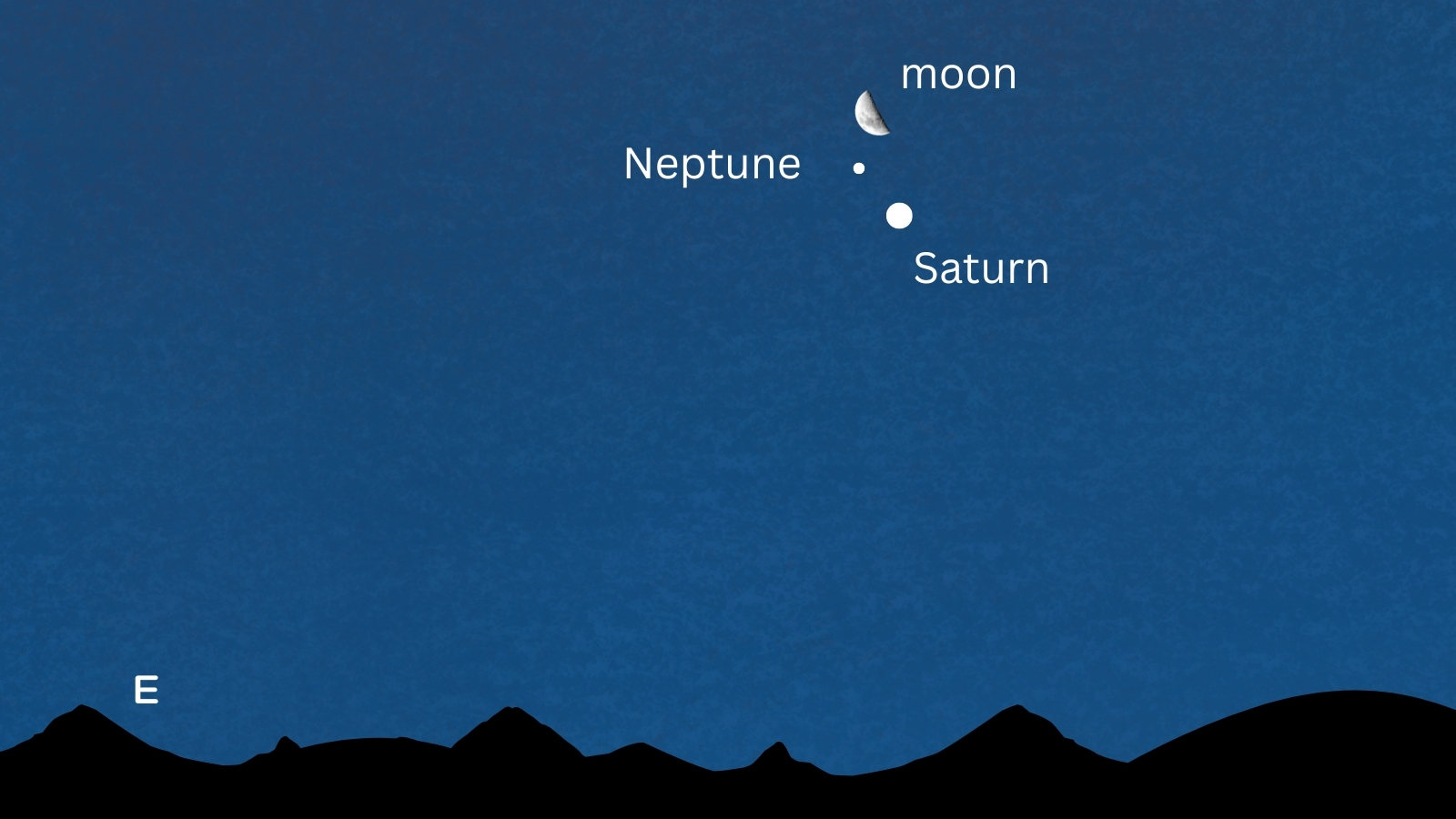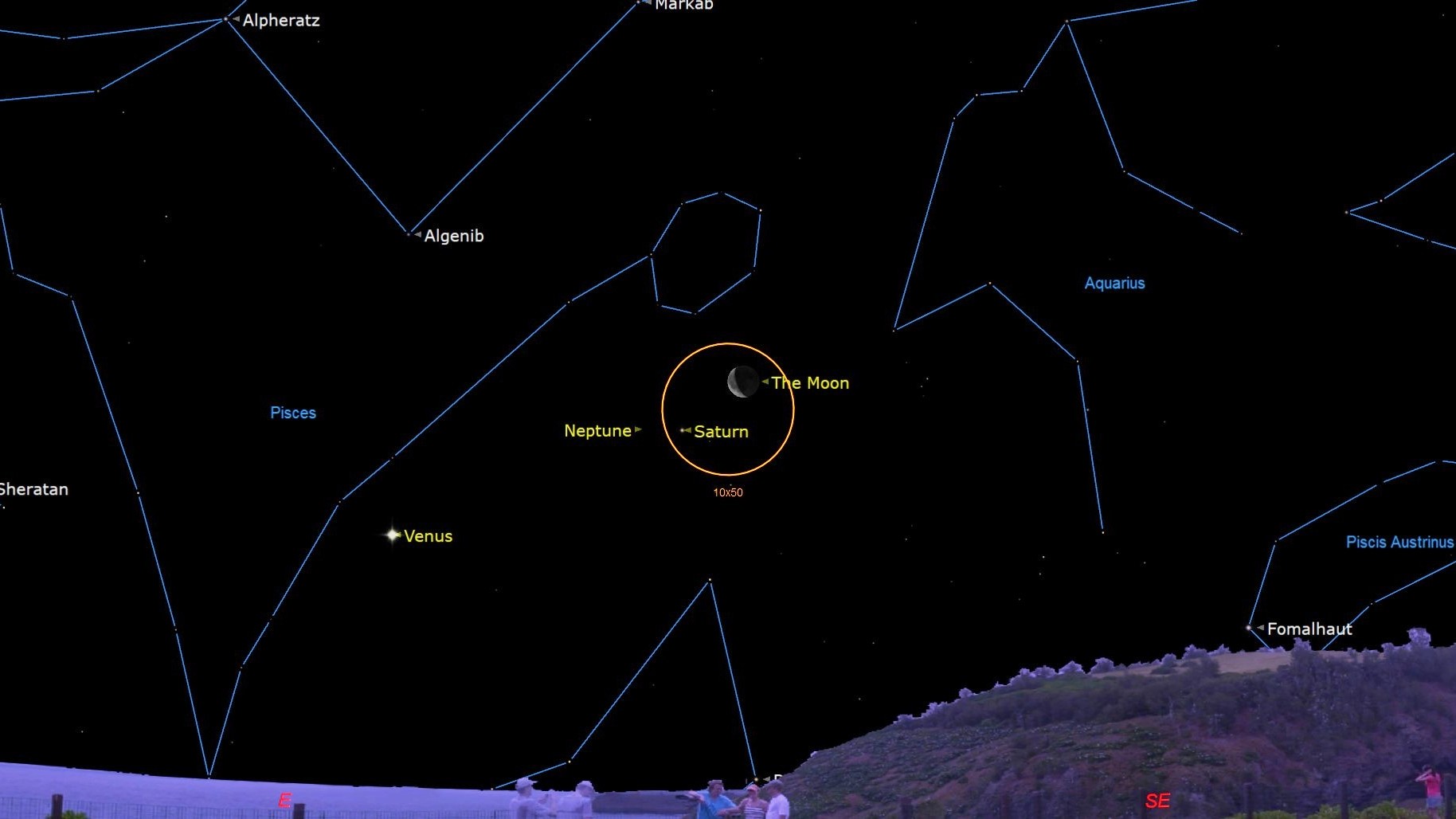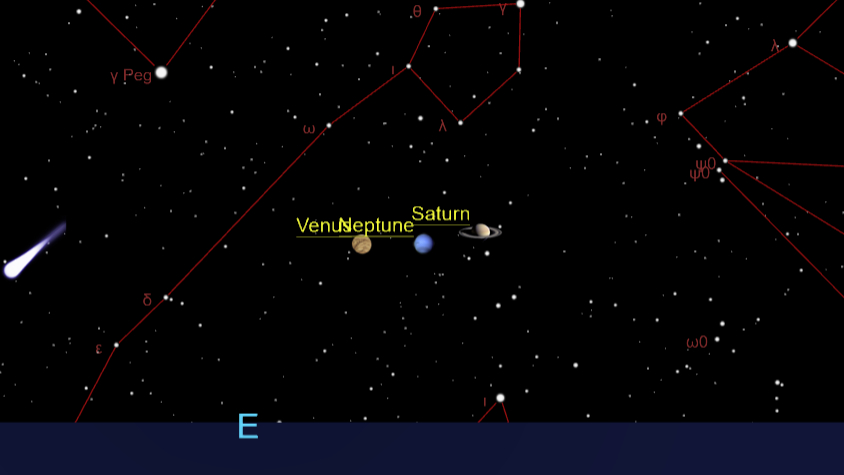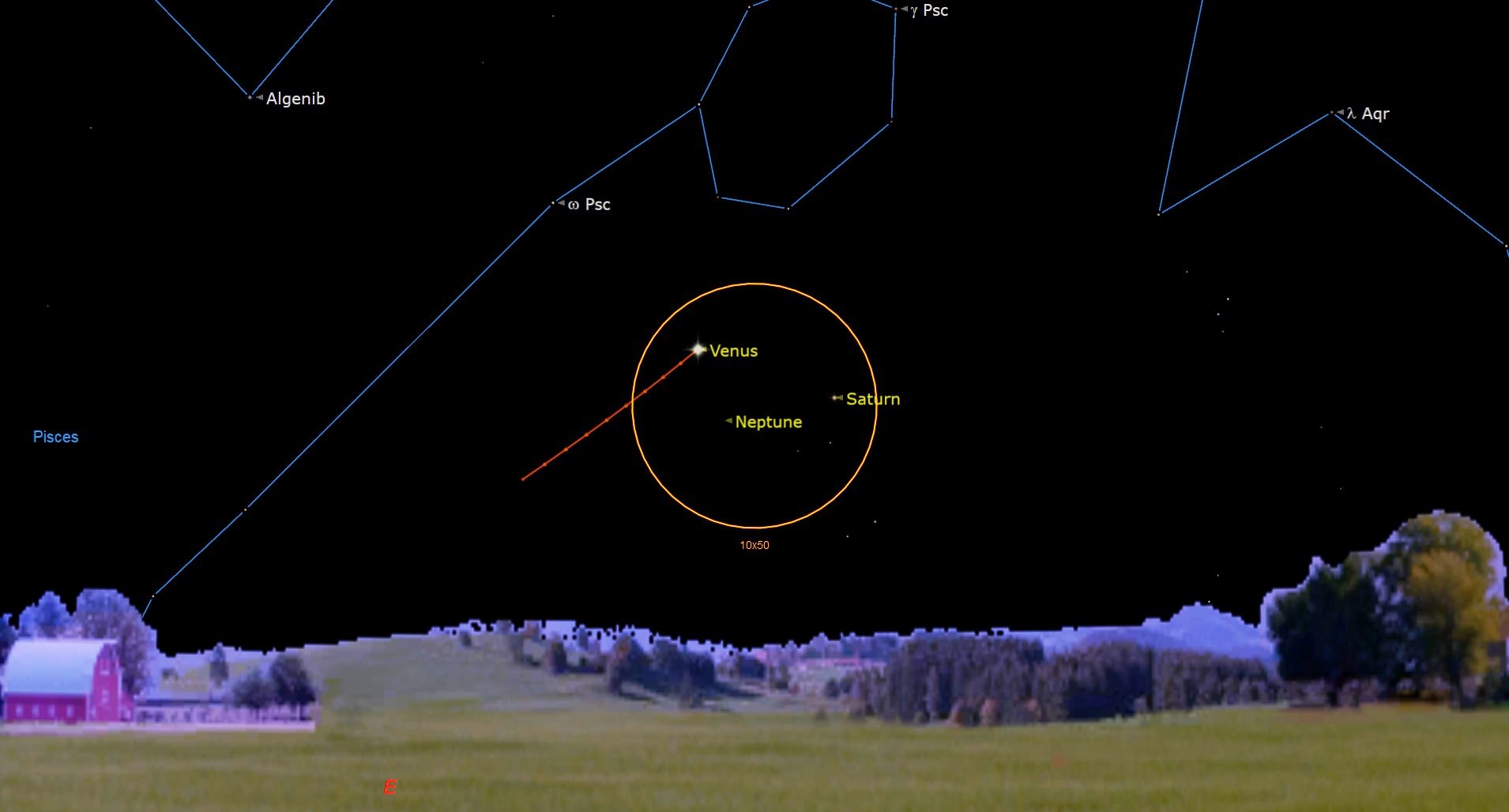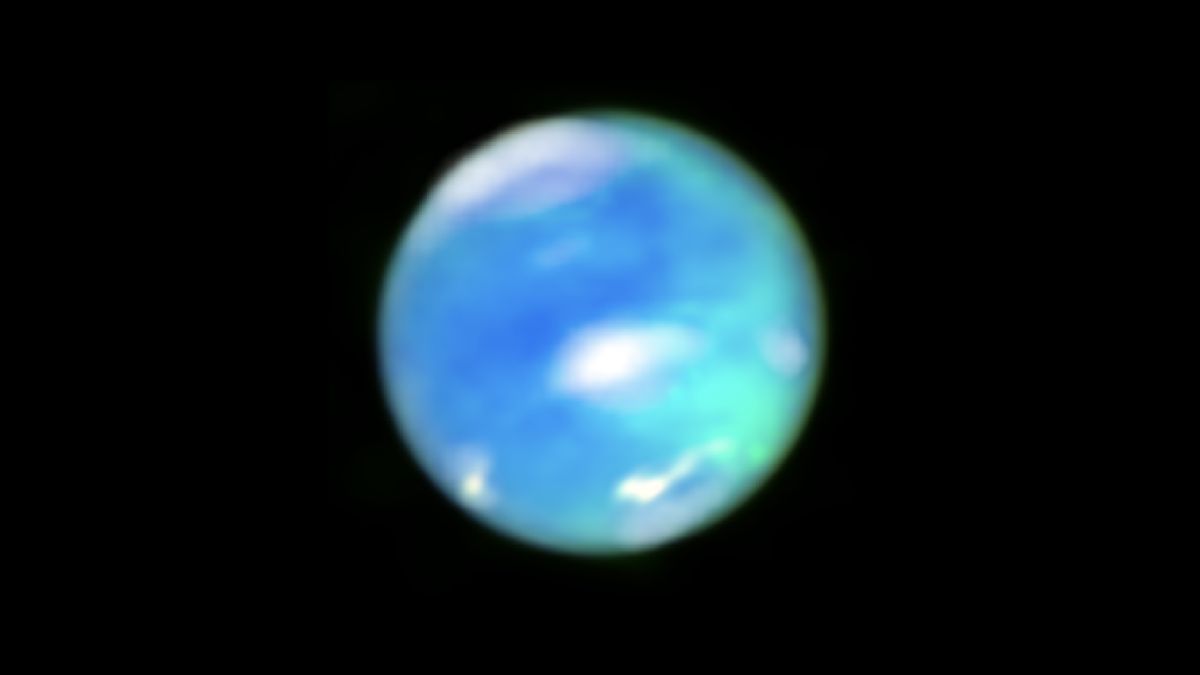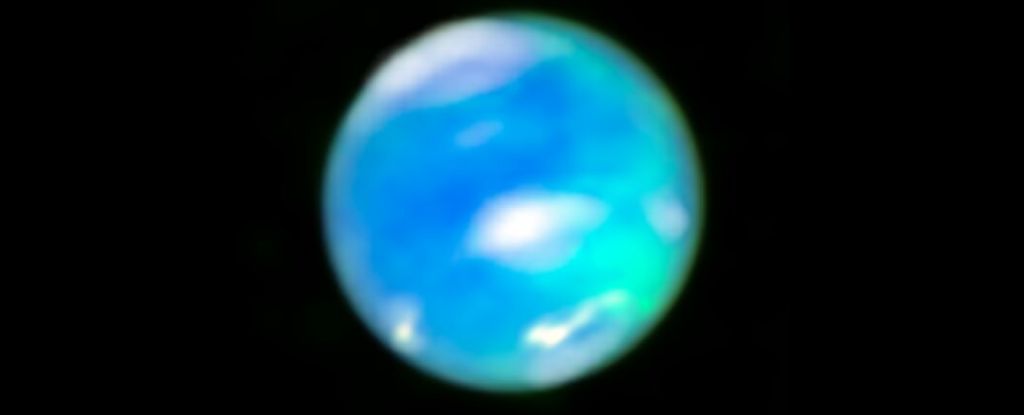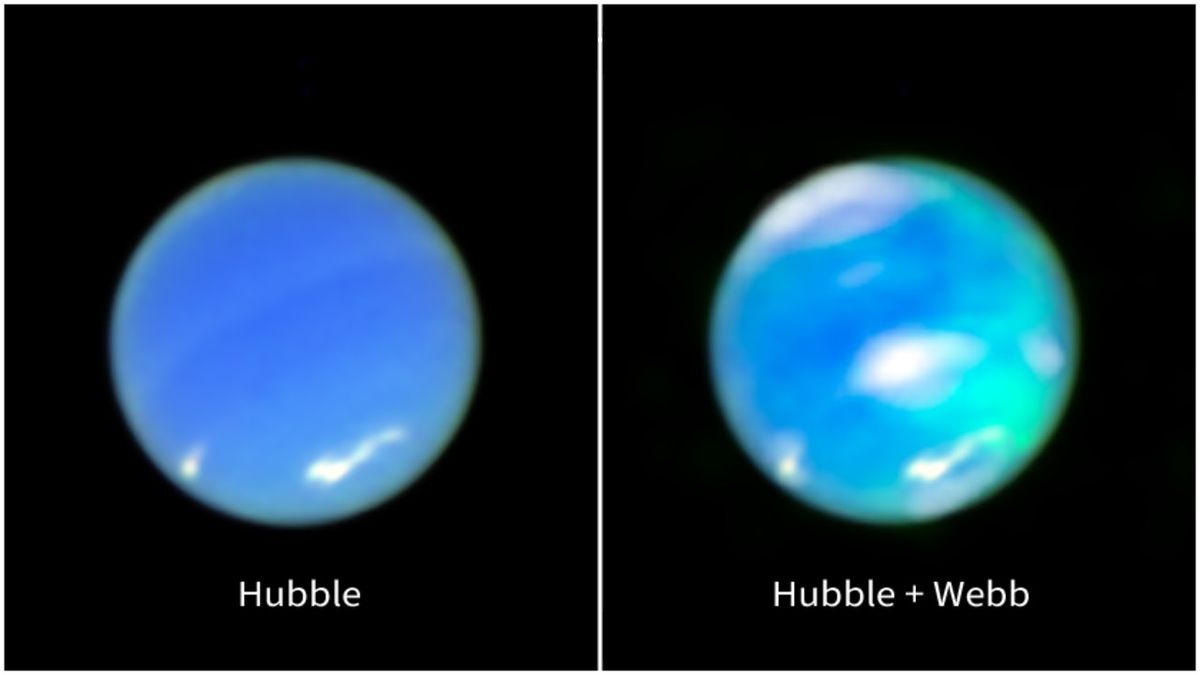
Neptune
Neptune is the eighth and farthest-known Solar planet from the Sun. In the Solar System, it is the fourth-largest planet by diameter, the third-most-massive planet, and the densest giant planet. It is 17 times the mass of Earth, slightly more massive than its near-twin Uranus. Neptune is denser and physically smaller than Uranus because its greater mass causes more gravitational compression of its atmosphere. The planet orbits the Sun once every 164.8 years at an average distance of 30.1 AU. It is named after the Roman god of the sea and has the astronomical symbol, representing Neptune's trident. A second symbol, an L-V monogram for 'Le Verrier', analogous to the H monogram for Uranus, was never much used outside of France and is now archaic. Neptune is not visible to the unaided eye and is the only planet in the Solar System found by mathematical prediction rather than by empirical observation.
